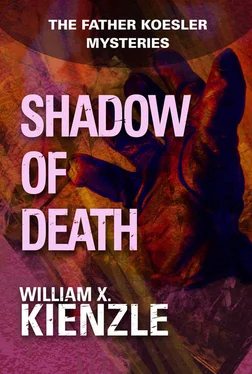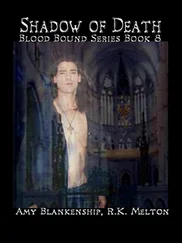Claregalway. He had to be careful now to leave N17 and move to N18.
Koesler, by long-established habit, kept his head in constant if imperceptible movement. Years ago, he had read that such motion, in addition to providing a more panoramic view of the terrain, helped the driver’s concentration.
He was reminded of Johnny Cash’s song about Ireland, “The Forty Shades of Green.” Koesler had not been keeping count, but there surely were more than a few verdant nuances to this land. And yet, considering the incredible number of violent deaths in Ireland’s history, and the amount of blood this ground had absorbed from the wars among the ancient kings to the battles with the Viking invaders to the seemingly endless British occupation, it was somehow odd that the land had not turned red.
Kilcolgan. It was time to turn down a secondary road that would lead along the circle of Galway Bay to the Burren.
He was now approaching an area of Ireland about which he had heard a great deal, but had never seen, not even on a picture postcard.
He had found it difficult to believe some of the descriptions he had heard. The Burren, after all, was a part of this lush, fertile island. And, of course, the Irish were known to exaggerate now and again.
He came to the crest of the hill he’d been climbing for the past several miles. And there it was. There had been no exaggeration in its description. It was awesome.
Layer after layer of limestone, stacked like shelves, going down one hill and rising in the next. He had never seen, much less imagined, anything like this. This, then, was the Burren.
He would not describe the scene as desolate. No; a moonscape would be his idea of desolation. At least in the Burren there were tufts of grass growing between the limestone slabs. And he had heard that cattle could and did feed on this grass and, indeed, that they gave good milk.
No water to drown a man. No tree to hang him from. And no earth to bury him in. So said one of Cromwell’s men. It was both an accurate delineation as well as an exact description of the fate Cromwell intended for the Irish. Koesler was beginning to understand why, to the Irish, compared with Cromwell, Hitler had many redeeming features.
As he drove slowly down a hill, he tried to comprehend what it must have been like to be forced to try to eke out a bare existence from this land. To be forced to live here with the responsibility of nurturing a family. Again, it was a wonder there were any Irish left in Ireland, let alone on earth.
It happened suddenly, without warning. The shock of the impact made it seem unreal. Something had slammed into his car from the rear. The jolt snapped his head backward, then forward, then back hard against the headrest. His car shot forward as he fought to regain control of it.
In panic, he glanced for a fraction of a second in the rearview mirror. He saw a car, a large black sedan—he did not know what kind, perhaps a Mercury. He had not seen it before. He had been unaware of its presence. But it was behind him now. And it was bearing down on him again.
There was no place for him to go, no place for him to move. The road was so narrow, there was barely room for two cars to pass each other. And on either side was the Burren.
He tried to speed up. But his compact was no match for the larger vehicle.
He was hit again. Harder. Again his car shot forward. Again he fought for control. As he wondered vaguely what in hell was going on, he could focus on nothing but trying to survive.
It couldn’t be—but it was: gunshots! Three of them. My God, now they were shooting at him!
He tried to swerve from one side of the road to the other in evasive action. It only made it more difficult to keep the car under control.
Suddenly, he was conscious of something pulling alongside him. He could afford only a brief glance to his right. The black car had moved even with him.
The crash was cataclysmic. The huge sedan hit his car alongside, knocking it from the road.
With his vehicle now totally out of control, Koesler could do nothing but hang on as the small Escort bounced and careened from one limestone shelf to another.
As it neared the bottom of the hillside, the car was virtually catapulted from a slab of limestone. Then, as if in slow motion, it nosed over. As Koesler saw the ground coming to meet him, his only thought was to wonder if, when next he opened his eyes, he would see his parents, departed friends, Jesus, or what . . .
9.
“What’s your name?”
A pause.
“Koesler. Robert Koesler.”
“What do you do?”
Another pause.
“I’m a priest.”
“That’s a good sign.”
A lot of Koesler’s general education had come through the school of hard knocks. He’d been through this one before. Once, in the recovery room, he had just come to after an operation. A nurse’s head had appeared over the side of his bed. “What is your name?” she had asked. Recalling a comedy routine of Bill Dana’s, Koesler had replied, “My name José Jimenez.” The nurse walked away, saying to another nurse, “He doesn’t know who he is yet.”
Koesler, too weak and groggy to summon her back, had been forced to lie there another half-hour until she returned to again check on his condition. Thus, he had learned the consequences of recovery room humor. He had resolved at the time never to try it again. And he had just kept that resolution.
“Does it hurt here?” asked the man in the white coat.
“No.”
“Here?”
“No.”
“How about there?”
“No.”
“Would you sit up for us now, please, Father?”
It wasn’t a recovery room. It was some sort of medical office. At least there were medical instruments all around. The white-coated man poking and prodding and asking if it hurt appeared to be a doctor. There was another man in the room. Koesler had met him, knew who he was, but could not recall his name. If he had thought the clanging bell of St. Patrick’s had given him a headache, he had not been prepared for this. This was Big Ben, the granddaddy of all headaches.
“Remarkable . . . truly remarkable.” The doctor sucked in his breath sharply. “I’d almost say it was a bit of miraculous.”
“That may be,” said the other man, “and the luck of the Irish rubbin’ off on him, as well as a nice solid buckled seat belt.”
“Just the remote possibility of a very mild concussion,” said the doctor, “and of course the external abrasions, contusions, and hematomas.”
“The goods are all right, only the package is damaged?” the other man asked.
“Quite.”
“What day is this?” Koesler decided to ask a few questions of his own.
“Thursday,” said the doctor.
Ah, yes. Koesler nodded. Thursday. But what week? What month? “What’s the date?”
The doctor, who had seemed affable, appeared to grow concerned. “What date do you remember?”
Koesler thought for some moments. “The eighth of May.”
Satisfied, the doctor glanced at the other man, then nodded. “He’s all right.”
Thank God. At least it was still the same day. “Where am I?”
“Regional Hospital in Galway.”
“How did I get here?”
“Superintendent O’Reardon here,” the doctor indicated the other man, “had us send an ambulance for you.”
That’s who he was. Koesler had met him in Inspector Koznicki’s hospital room. Superintendent O’Reardon must be spending a lot of time in hospital rooms lately.
“Do you know what happened to you, Father?” asked O’Reardon.
“The Burren . . . the car . . . out of control . . .” Koesler shook his head as if to clear the cobwebs. “But . . . how did you happen along?”
“Oh, Inspector Koznicki asked me to keep an eye on you.”
Читать дальше












